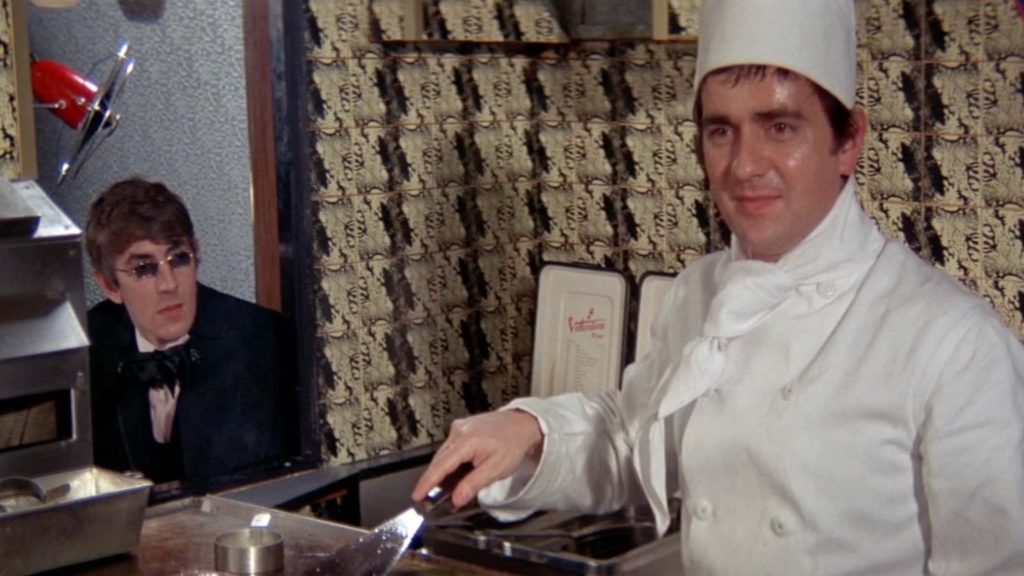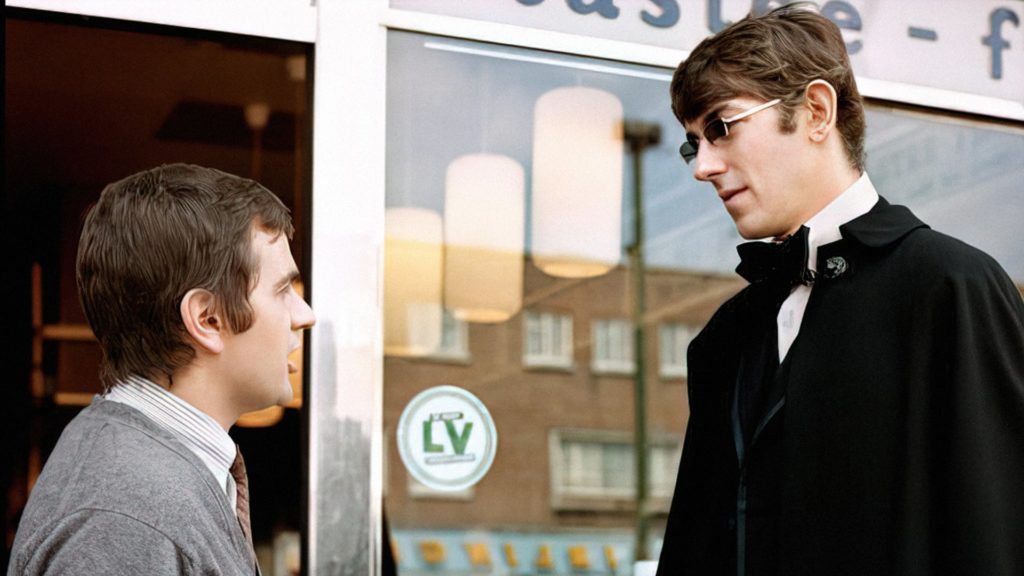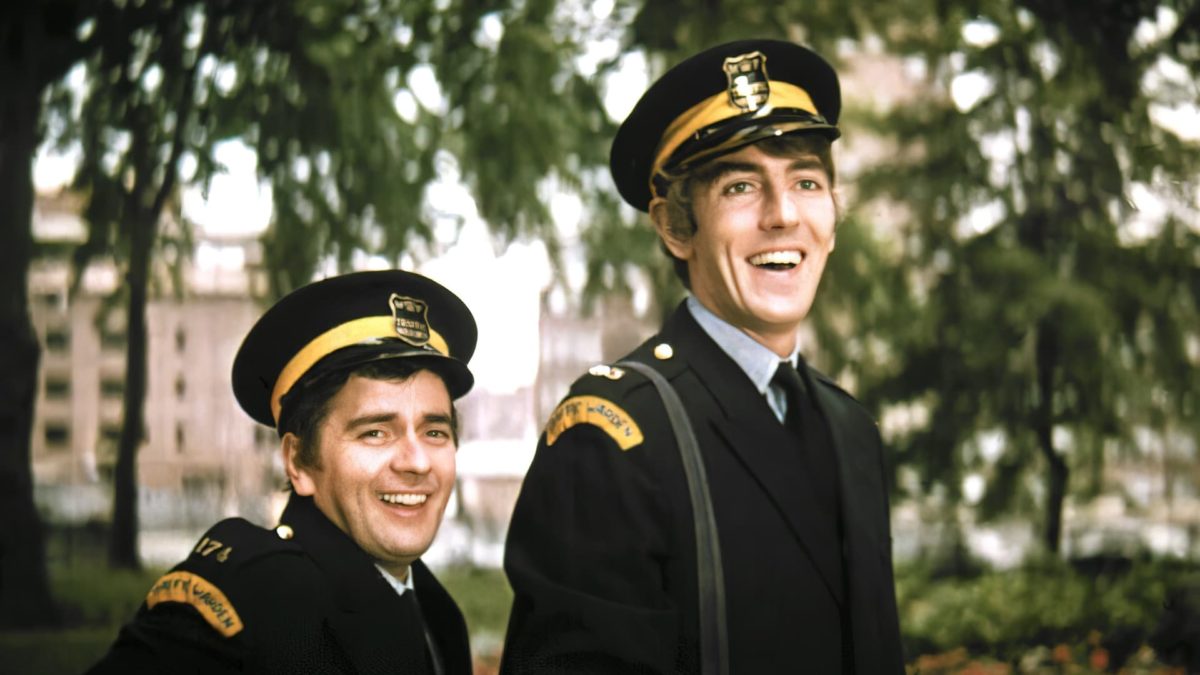I know it’s just my Americentrism, but I think of the 1967 English film as “the other Bedazzled” despite it being 1) older than, 2) the beat-for-beat inspiration for, and 3) better than the 2000 American remake. Like the Brendan Fraser vehicle (or, in fact, vice versa), Bedazzled tells the story of a lovesick schmuck who makes a deal with the Devil for seven wishes to try and win the heart of his coworker, only for each wish to implode due to some quibble (thanks, Brian, for the vocab lesson on this usage).
Bedazzled was written by Peter Cook and stars Cook as the Devil (given the very British name George Spiggott so he can better blend in with humans) and Dudley Moore as Stanley Moon. Moore and Cook frequently collaborated as comic partners, Cook playing tall, suave, clever characters, Moore playing short, clumsy dinguses. Their signature work was a sketch comedy show called Not Only… But Also that ran for three seasons in the 1960s, which is especially relevant because Bedazzled is essentially a series of sketches loosely connected by the Faustian premise.

What shines about Bedazzled is its irrepressible wit. Cook’s zingers are intelligent and lightning-paced. Slightly philosophical, too: as jokey as the movie is, you can feel Cook grappling with his own vision of good and evil, and what a biblical Satan might look like in the Swinging Sixties. It’s occasionally clever, though always doused in irony, e.g. the seven deadly sins personified as local businessmen and inconvenient neighbors (plus Raquel Welch as Lust for some eye candy). Mostly Cook is taking the piss out of stern moralists by making the Devil a feisty prankster who perpetrates venial, tedious evils like scratching vinyl records and resetting parking meters.
For each of the various wishes, spanning about ten minutes apiece, we’re tossed, in medias res, into some new setting, challenged to figure out exactly what’s going on and what the toxic payoff will be. Cast members appear in slightly different roles, ultimately analogous to their “real” character, in each vignette. Often the scene will seem like a dream come true at first for Stanley, though sometimes the dark twist is immediately obvious (e.g. when he wishes to be a fly on the wall, he is literally a fly on the wall). Then, the other shoe will drop and Stanley will confront some nasty wrinkle in the premise. He can escape the wishes by blowing a fart raspberry, which is often deployed with great comic timing.

The film is directed by Stanley Donen of Singin’ in the Rain and Charade fame, and he does a lot to keep the film a coherent whole despite its shaggy, scatterbrained script. Donen gives each of the wish segments a distinct visual profile, usually one or two interesting visual ideas, from picturesque domestic bliss (twist: the bliss is with Cook, and Moore is the secret tryst) or trippy pop music stardom (twist: Moore’s band’s popularity tanks when a new, nihilistic rock group fronted by Cook takes center stage).
Unfortunately, Cook doesn’t really know how to end his film, so he doesn’t really try. He adds one last, jarringly discordant, sketch on the end that feels like a Monty Python leftover scrap: Moore joining a nun convent that has to jump on a trampoline a bunch to get “closer to God.” There’s a recurring thread introduced late in the film about the Devil winning 100 billion souls that ends up as a confused punchline. It tanks the momentum for what is a film I’d otherwise recommend. It’s such a baffling, off-putting conclusion.
The film is still worth the watch if you enjoy briskly-paced British humor and don’t mind an episodic structure, but not one I expect to revisit for a long while.
Is It Good?
Nearly Good (4/8)
Dan is the founder and head critic of The Goods. Follow Dan on Letterboxd. Join the Discord for updates and discussion.

